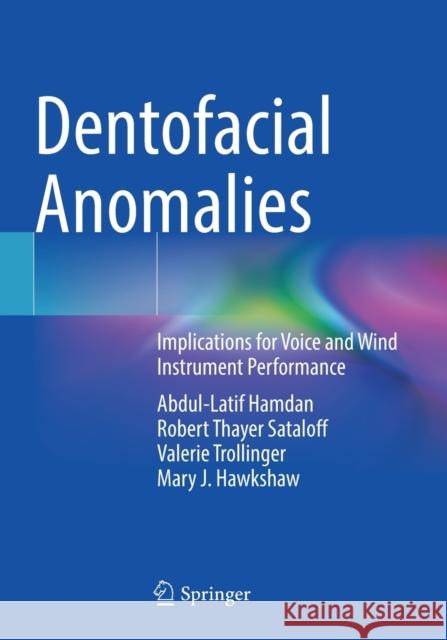Dentofacial Anomalies: Implications for Voice and Wind Instrument Performance » książka
topmenu
Dentofacial Anomalies: Implications for Voice and Wind Instrument Performance
ISBN-13: 9783030691110 / Angielski / Miękka / 2022
Dentofacial Anomalies: Implications for Voice and Wind Instrument Performance
ISBN-13: 9783030691110 / Angielski / Miękka / 2022
cena 524,53
(netto: 499,55 VAT: 5%)
Najniższa cena z 30 dni: 501,19
(netto: 499,55 VAT: 5%)
Najniższa cena z 30 dni: 501,19
Termin realizacji zamówienia:
ok. 16-18 dni roboczych.
ok. 16-18 dni roboczych.
Darmowa dostawa!
This volume provides an eloquent review of the anatomy and physiology of phonation, the work-up of patients with voice disorders, basic evaluation of wind instrument performance and dysfunction, and a full description of the most common skeletal and non-skeletal dentofacial anomalies, including their means of diagnosis and treatment. This is followed by a comprehensive review of literature on the vocal and acoustic features of affected patients, as well as the special considerations in wind instrumentalists. The effect of orthodontic therapy/ orthognathic surgery on voice, associated upper airway changes, and wind instruments performance is emphasized. The information provided in this book will heighten the patients’, therapists’, teachers’ and physicians’ awareness of the vocal characteristics and wind instrumentalists concerns often associated with these conditions.Dentofacial Anomalies: Implications for Voice and Wind Instrument Performance is addressed to otolaryngologists, laryngologists, speech-language pathologists, voice teachers, professional voice users, wind instrumentalists, instrument teachers, arts medicine physicians, physical therapists, orthodontists and other dentists, as well as members of the general public who are concerned about their voices and or wind instrument playing.











